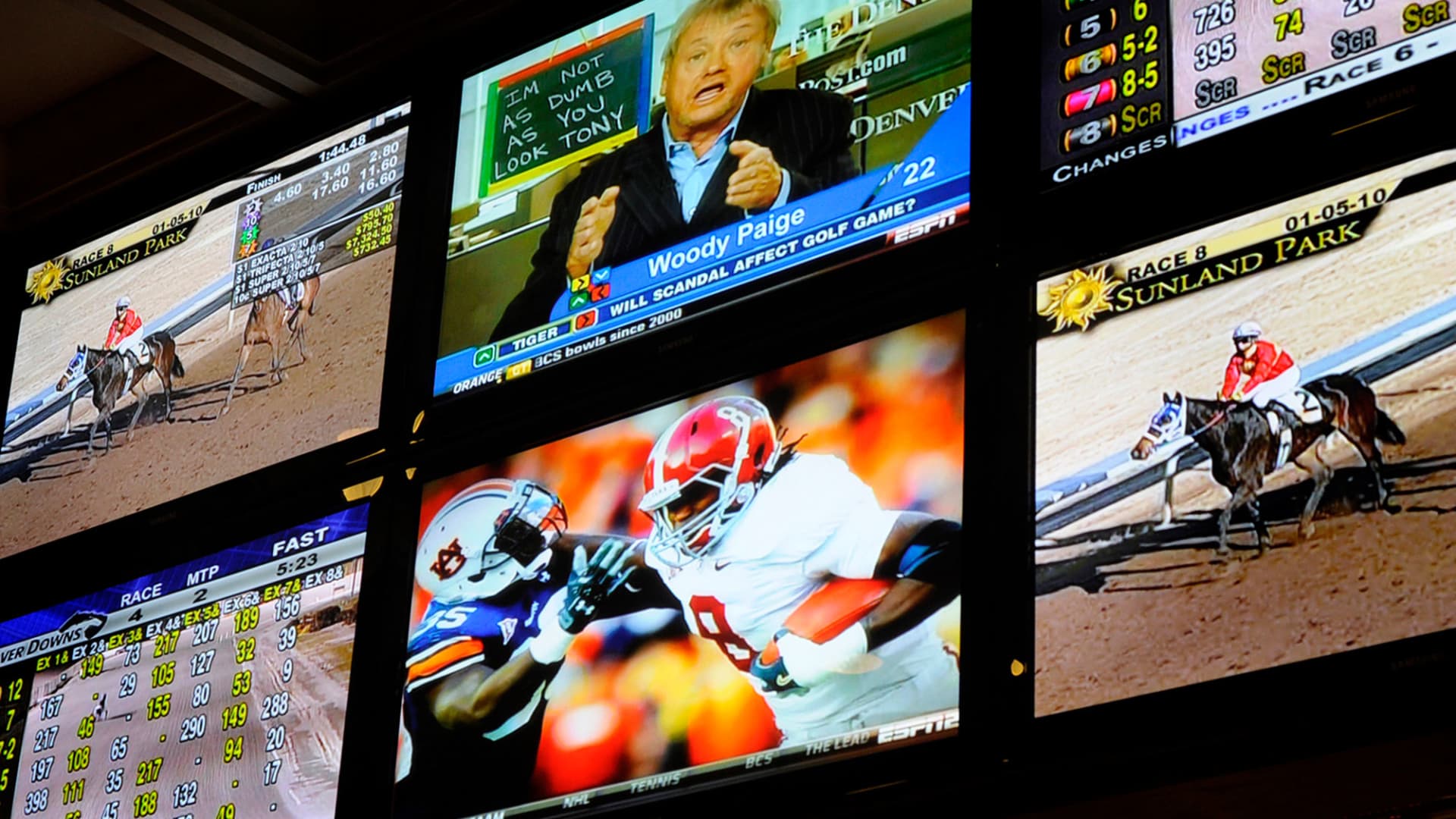Algerina Perna | Baltimore Sun | MCT | Getty Images
The explosion of online sports betting is taking a toll on personal finances, particularly among those who are financially distressed.
That’s the conclusion of a recent paper, “Gambling Away Stability: Sports Betting’s Impact on Vulnerable Households.” The authors found that sports betting has exploded since the Supreme Court overturned a federal law prohibiting it in 2018. Since then, 38 states have legalized it and it has become a growth industry, generating more than $120 billion in total bets and $11 billion in revenue in 2023 alone.
That has put considerable sums into state coffers, but it has come at a notable personal expense to gamblers and their families. Those who participate tend to invest less and have higher debt levels.
“Our results show that not only does sports betting lead to increased betting activity, but it also leads to higher credit card balances, less available credit, a reduction in net investments, and an increase in lottery play,” the authors concluded.
The authors noted these negative effects were particularly noticeable among “financially constrained households.” That term was not defined, but the implication is that this group typically has lower savings, lower cash levels to cover expenses, higher debt levels and lower net worth.
Investing takes a hit
The authors used a quarterly panel of 230,171 households in states that have legalized gambling. About 7.7% of the households made online sports bets, with a household average of $1,100 a year.
Not surprisingly, people who gamble on sports have less money to invest, particularly in the stock market. The authors found a large decrease in net deposits to traditional brokerage accounts. “Two to three years after betting becomes legal, there is a noticeable drop in net investment relative to states where betting is not yet legal,” the report said.
The authors estimate that legalization reduces net investments by bettors by nearly 14%, and that every dollar spent on sports betting reduces net investment by $2.13.
More debt, overdrawn bank accounts
But the implications are much broader.
“The increase in betting and consumption drives an increase in financial instability in terms of decreased credit availability, increased credit card debt, and a higher incidence rate of overdrawing bank accounts,” the authors said.
This is particularly true for financially constrained households. The higher credit card debt indicates that these households are not just shifting funds from one type of entertainment to another. (For example, shifting money from betting on lotteries to betting on sports.) Instead, they are “becoming more indebted to fund an addictive losing proposition.”
Again, lower-income households suffer disproportionately; the bottom one-third of households by income had the largest increase in spending on sports gambling relative to income.
Bettors vs. non-bettors
There were notable differences between the characteristics of bettors and non-bettors.
Both groups had similar incomes, but bettors displayed riskier behavior. They were more than twice as likely as non-bettors to have ever invested in crypto or ever overdrawn their bank account. They were four times more likely to have played online poker or purchased lottery tickets.
These results are consistent with several prior studies. One 2009 study concluded gambling‐related activity is greater among low‐income investors, who tend to excessively bet on state lotteries and also are overweight risky, lottery‐type stocks.
In a pickle
The authors note the quandary for policymakers. By continuing to legalize and expand activities like sports gambling — where the vast majority lose money — the government is sending conflicting signals.
On the one hand, the government attitude is: These are adults, they have a right to spend their money any way they want to. And we need the money.
But governments have other priorities they are promoting, including encouraging saving money for retirement, that are clearly in conflict with promoting gambling.
“As legalized sports betting gains traction, it potentially undermines government efforts aimed at promoting savings through tax incentives and financial literacy programs,” the authors concluded.
“Policymakers should consider how the allure of betting might divert funds from savings and investment accounts, particularly for constrained households, which can affect household financial stability and long-term wealth accumulation.”

 Blog Post1 week ago
Blog Post1 week ago
 Economics1 week ago
Economics1 week ago
 Finance1 week ago
Finance1 week ago
 Economics1 week ago
Economics1 week ago
 Economics1 week ago
Economics1 week ago
 Personal Finance1 week ago
Personal Finance1 week ago
 Accounting1 week ago
Accounting1 week ago
 Economics1 week ago
Economics1 week ago









